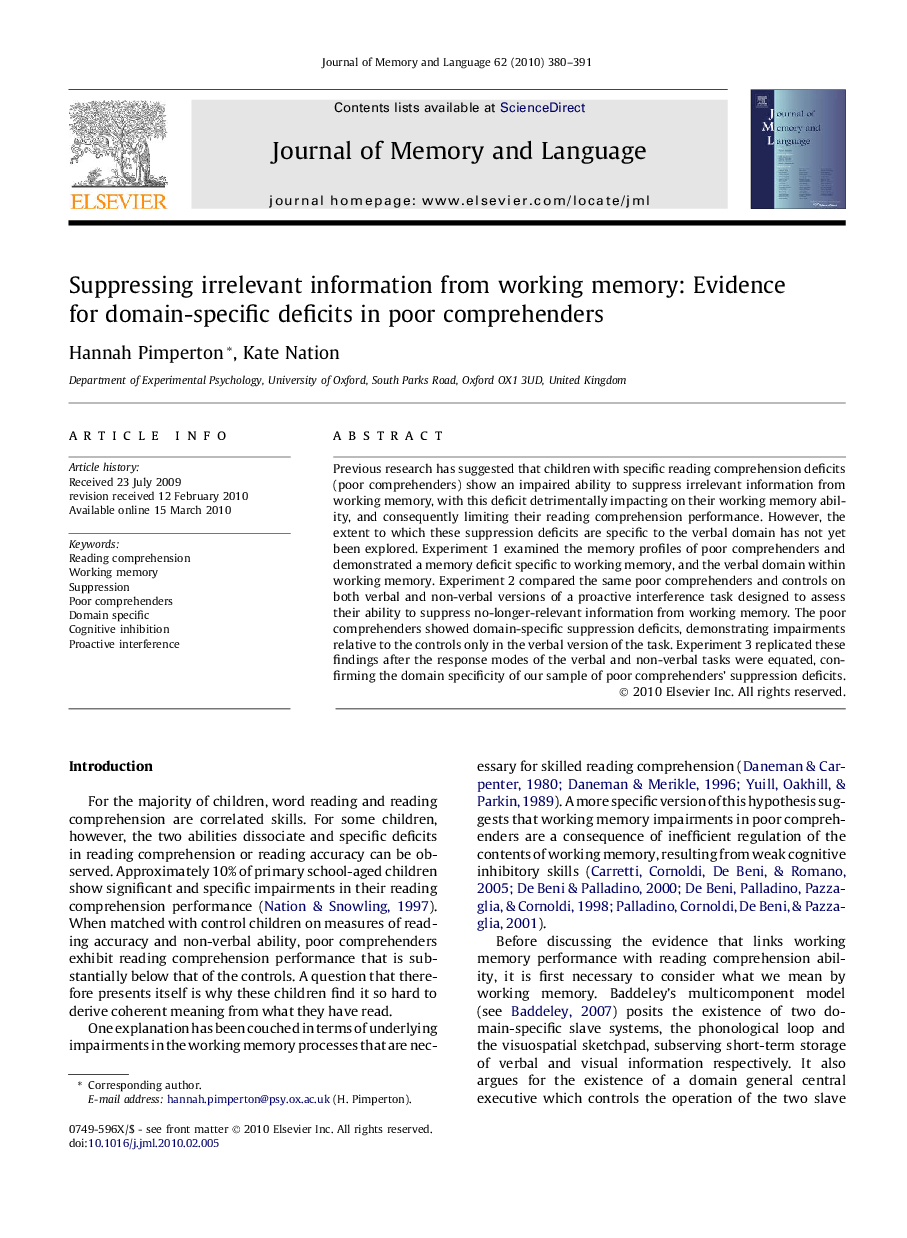| Article ID | Journal | Published Year | Pages | File Type |
|---|---|---|---|---|
| 932055 | Journal of Memory and Language | 2010 | 12 Pages |
Previous research has suggested that children with specific reading comprehension deficits (poor comprehenders) show an impaired ability to suppress irrelevant information from working memory, with this deficit detrimentally impacting on their working memory ability, and consequently limiting their reading comprehension performance. However, the extent to which these suppression deficits are specific to the verbal domain has not yet been explored. Experiment 1 examined the memory profiles of poor comprehenders and demonstrated a memory deficit specific to working memory, and the verbal domain within working memory. Experiment 2 compared the same poor comprehenders and controls on both verbal and non-verbal versions of a proactive interference task designed to assess their ability to suppress no-longer-relevant information from working memory. The poor comprehenders showed domain-specific suppression deficits, demonstrating impairments relative to the controls only in the verbal version of the task. Experiment 3 replicated these findings after the response modes of the verbal and non-verbal tasks were equated, confirming the domain specificity of our sample of poor comprehenders’ suppression deficits.
